- Home
- Olivia Gaines
My Mail Order Wife (The Value of a Man Book 1) Page 2
My Mail Order Wife (The Value of a Man Book 1) Read online
Page 2
“No, I just have you figured out,” she told him as she gulped down the glass of orange juice.
“And what have you figured out about me?” He truly wanted to hear her view.
“You are bidding your time. You are waiting for someone to die,” she said flatly.
“What? Taka-tay-veesha—you have some nerve. You don’t know me!”
She stood and gathered her few belongings. “Oh yes I do. Men like you have no real value. You only become valuable by either the needs of a child or the needs of a woman. Your own self-value you won’t discover because circumstance defines you. Your circumstance will be defined by either your father dying and leaving you his wealth, or a senator dying and giving you an opportunity to fill his seat. In the meantime, you just take up space, being paid to rehash someone else’s ideas, with none of your own. You are waiting for someone to make you relevant.”
Thurston was offended by her words and struck out at her with harsh words, “And what are you doing that is so magnificent in Compton for your fellow man?”
“You may be surprised, Mr. GOP. I came to your rescue, didn’t I?” she said as she grabbed her purse. “Thanks for breakfast.”
“I’m not through talking to you Takaveesha!”
“But I am done talking to you. Glad you feel better,” she told him as she opened the door and stepped out into the hallway.
He wanted to run after her but the coffee hit his stomach like a rock and he realized she had eaten all of the food. He scrambled to get back to the bathroom. To hell with her… she didn’t know what she was talking about.
Chapter 3. Maybe she had been right…
Thurston returned to his New York office on Friday morning, no worse for the wear, but still not quite one hundred percent. He received a few welcome backs from people he had never noticed before. Congrats was shouted at him for the record number of donations received from his visit to Los Angeles, yet the trip had left a hole in him. The hole only grew larger when his assistant rushed into his office asking, “Did you hear? Did you hear?”
“Hear what?” he asked as he settled, or at least attempted to get comfortable, behind his desk. Since returning from LA, he had been restless and uneasy, feeling as if something big was coming his way.
“Congressman Owens is in the middle of a horrible scandal. His girlfriend has gone public with all sorts of documents and details about his financial misconduct, and the poor man has had a heart attack. It is uncertain if he is going to make it,” Vickie, his assistant said, sounding as if she had just won the lottery.
“Vickie, you make this seem like good news,” he stated drolly.
“It is. This means there is an open seat in Congress and it is your turn,” she said. There must have been something in the air because suddenly, everything became more intense. The air was electrified and every staff member was flitting about, whispering his name.
Finally Vickie turned back to him, “Aren’t you excited? This is great news!” To you maybe. His value as a member of the party increased, but maybe that Takavesha woman was right; did he have any real value as a man in this party? He wasn’t even sure what platform he would run on if called upon to seek the vacant seat. Even if it was his turn.
It is a common misconception that all African Americans or Negros arrived in America the same way, on a slave ship. The Cromwell’s, like John Pedro and others arrived at the shores of Virginia like many whites, as indentured servants. After working hard as a skilled tradesman, many of these servants earned their freedom and entered into a different class of socioeconomics that held no ideology of racial inequality. Many of these men were free and owned land, voted and testified in courts. Others were teachers of industry and farming, instructing land and plantation owners how to grow rice and tobacco as they did in their own countries.
The Cromwell’s were learned and skilled craftsmen who worked hand-in-hand with White landowners and businessmen. Well-spoken and well respected, Elijah Cromwell opened one of the first trading posts in upper New York, selling grains and apple seeds to farmers as far west as Vermont. Since 1622, a Cromwell was a leader of the community.
Fast-forward to the new millennia, and times had not changed. Thurston Cromwell, a Harvard educated lawyer, teacher and political advocate for conservatism, married well. He understood that there was new money, old money, and even older black money. His son, and namesake, also married well, although she was more new money than he would have preferred; they also produced fine sons and several daughters who married well.
Thurston Cromwell the third was a different sort of bird who loved power. The more he could muster, the better he felt. Unlike his father and grandfather, he was not content to have his fair share; he wanted the lion’s share. Under his direction, the family fortune quadrupled, which brought with it a different kind of power—political power. He was never one to stand in the limelight; he preferred to pull the strings from the background. He married a quiet woman of impeccable breeding and high station who had the personality of a wet noodle. With no real presence nor a real voice of her own, she did as her husband instructed and even bore him three well-mannered children. Veronica, their daughter was married off to man of equal standing who had the disposition of a sad clown. This led the way to the birth of four little sad puppets that continued the family line of following instructions.
The second son, born with a high functioning form of autism, did not earn the moniker of Thurston the fourth and was often seen poking about the gardens on the estate of the upper New York home. In the winter months, he poked about the greenhouse, caring for his plants and flowers. Now in his mid-thirties, many in the family often envied Lawrence because he did not know any better, which made him the one true happy person in the whole clan.
The younger son, now approaching 32 years of age, was a mover and shaker. A man with his own mind, but tied to tradition and family. He followed instructions like those before him, whether he wanted to or not. Thurston Cromwell the fourth was educated at Princeton and held an undergraduate degree in communication and advanced degrees in public administration and a Juris Doctorate from the Harvard School of Law. In him, his father saw opportunity. His father wanted him in Congress.
With careful finesse and structuring, an internship was acquired for a young Thurston at the Republic National Committee. With an impressive educational background and former editor of the Harvard Journal of Law and Public Policy, he was pulled into the fold with giddy anticipation. In less than a year he had climbed in the ranks and in two years, he was the Head of Communications for the party. A political future was on the rise for him. The scandal that loomed overhead for Congressman Owen was ideal for him to make his move.
His phone rang. It was his father, “Son, that Congressional seat is yours. We just have to get your married before the campaigning starts.”
Chapter 4. She’s a what…?
Thurston had learned early on in his childhood that his father was not a man of many words. He made statements. Those statements became laws. Those laws he strictly enforced. It had never dawned on him to question nor challenge his father’s edicts until that Saturday afternoon when his mother called and insisted he come and join them for lunch. Always a conservative dresser, he put on warm clothing for the cooler upper New York weather and made his way to the family home. He always found it ironic that the house sat on 40 acres and there was always a mule in the barn. The land had been in the family for nearly five centuries, and they still had a mule. His grandfather often joked that the sharecropper idea came from “our ancestors.”
It wasn’t the past so much that worried Thurston. As he sat in the formal drawing room watching his mother sip on her tea and his father pretending to be disinterested as his future walked through the front door. It was a sad moment in his life when he realized that a strange woman with a weird name who did not know him had summed up his life. Someone hadn’t died yet, and now to become truly relevant, he would have to marry some woman he didn’t know
to create a fake family he would probably hardly see in order to run for an office he wasn’t even sure he wanted.
“Son, the 11th District is 56% black. In order to win the votes of ‘those’ people, we have to present an image they can relate to… you know, the brother that will speak up for them in Washington,” his father said.
How, when I can barely speak up for myself?
His father, God bless his soul, was a man who believed in choice; therefore he presented his son with several. Six to be exact, one paraded in right after the other. Six African American women, all the right height, the ideal size and vetted for his choosing. To ensure all was well, the butler was asked to snap photos of him standing next to the women.
The first one was a woman with full pouty lips, librarian glasses, a tightly styled conservative hairdo and eyes full of fear. When Thurston rose to shake her hand, she shrank like a child being scolded. She also refused to make eye contact with him. This one, he didn’t bother to ask her name.
Lady number two was Marrietta Billings Collinsworth was from an old Virginia political family with strong ties in Washington. She took a seat and began to drill him on his policy stance on women’s rights. “I am a Republican; however, I am diametrically opposed to the party’s stance on women’s reproductive health and choice. I would like to make sure going forth that you will champion this cause as well.”
“What?” Thurston asked as his father ushered the woman out of the room. The third lady was a replica of his mother in personality. She was also so dark she looked like a negative in a Polaroid. They did not look good together on camera. Even the butler, who was always stoic, looked at the photo on the screen, back at the woman, the photo on screen, and then made an unapprovingly, inappropriate face.
The fourth one was interesting. A caramel-hued woman who dripped of sex appeal. When she crossed her legs, his mind went into overdrive. The other parts of him did as well when she stood unbearably close while they took pictures. He was so distracted by her that he found himself agreeing to whatever she said. Evidently, she too had attended law school and she was negotiating her terms. Thurston’s eyes were focused on her mouth. That sexy mouth. Those beautiful breasts. Until his dad grabbed her by the arm and shepherded her out the door as well.
“Son, that one is too much woman for you. She will have you in debt while she is sleeping with half of the Hill,” he said. And with that, the sexy pouty lips, I could-have-loved-you-so-good woman, was no more.
He wanted her to come back so he could look at her again. Maybe take a few more pictures with him. His mind kept going back to her. Did she tell me her name?
By the time selections five and six came into the room, his spirits were down. Contessa Hilliard was a pleasant woman who would give him children with bright eyes and lots of energy. She told him so. She also told him she would want to wait a year before trying to conceive; that way they would have plenty of time to get to know each other.
“You want to be married for a year before we begin to start our family?” he asked to make sure he understood what she was saying.
“No. I want us to be married a year before we consummate the marriage,” she told him.
This one he ushered out of the room. He didn’t even bother to take a photograph with her. His mother, Beatrice, was smiling. Thurston was not. “Are you amused by this mother?” Thurston asked.
“Actually, I am, although I must apologize that it is at your expense,” she said. “That one was a bit of a nut.”
He too found himself smiling along with her. “Mother, what do you think of all of this?”
She placed a warm hand over his, “This is how I met your father. It is how my parents were introduced. Sometimes the selections are made at the cotillion, but you are 32 years old. And we do not have a great deal of time,” she said as she asked the butler to send the next one in.
The final lady is what made him stand up and rage against the machine. How could he in good conscience go to Washington to represent ‘those people’ when he had no idea who ‘those people’ were? Monique Estelle Douglas, a descendant of Frederick Douglas, reminded him of Takataveesha, or whatever her name was. Now that woman would make a good wife. The way she had cared for him when he was down was a good indicator of what she would do for him as his life partner. Marrying her was no more ridiculous than marrying Monique, who wanted to ensure there would be room for her monarch collection. “I am a lepidopterist,” she told him proudly.
Thurston hurriedly escorted her out as well. She could take her lepidoptering ass on somewhere else. Suddenly he felt infused with new energy as he grabbed his coat and keys from Rodgers.
“Where are you going, son?” his father yelled after him. “That was just the first round of selections.”
“I will choose my own wife, Dad, thanks,” he told him as he headed back to Manhattan. The first thing he needed to do was head to the 11th District and get to know the people he was about to represent. The next thing on his list was finding Ms. Tay-Tay Brown of Compton. He was about to make her an offer he hoped she would not refuse.
Chapter 5. A shot in the dark…
So many thoughts, so many ideas, but Thurston Cromwell was a man who liked everything to be in place. He reveled in it, which is why he was not currently attached. It wasn’t as if he didn’t desire to belong to someone; his job took too much of him or he gave too much to it. Either way, things for him were about to be adjusted. He could almost taste that Congressional seat, and several members of the party had called to urge him to run. He would, but first he had to get his house in order.
On Monday, he placed a call to Massey James, Jr, a private investigator and tracker. Upon meeting the man in person at his apartment in Manhattan, he understood why people called them ‘dicks.’
“So, you want I should dig up all kinds of dirt on this Tay-Tay Brown of Compton?” Massey asked.
Thurston was thinking that more than anything he wanted him to rephrase that sentence and use some proper syntax. “What I need is a comprehensive background check. I want credit, past loves, nearest relatives, police records, if she got a ticket, or if she owes her dentist for a filling. Also, if there are any crazy husbands, boyfriends, baby daddies.” He arched his eyebrows at the investigator.
“You want I should also include a fuck and suck search as well?”
Whatever that was sounded crass and offensive and the look on Thurston’s face conveyed the sentiment. But the investigator explained, “Those kinds of searches are important. She may have been to bed with some people that can come out of the woodwork and pop up in the middle of your campaigning. Women tend not to make full disclosure of their college years and the years in between boyfriends…”
“Yes, include that as well,” he told the investigator, who left with nothing more than a backwards glance.
“I’ll be in touch,” Massey said.
He was out of touch for nearly three weeks. Three weeks of hell for Thurston, who was constantly bombarded with choices his father kept sending either to both his home or to his office until finally, he could take no more and he pleaded with his mother to help him.
The parade of women stopped. He almost wished they hadn’t. His father called him on a Friday evening to see if he was free. “I am in town, son, and I was wondering if we could get a drink?”
This is bad. This is bad. It wasn’t even his birthday and his father was scheduling some one-on-one time. “Sure Dad, when and where can I meet you?”
“I am out front and I have a car; come on down,” he told him.
There were many lessons his father had taught him growing up, one that always hung about his neck like the stink of death was the fear of dread. Ironically, he also learned there were two types of dread: one was accompanied by the fear of fatality. The hammer falling followed this fear, and you are about to have a life altering moment of the worst day of your life. Your imminent death also fell in this category. You see the truck coming, you can’t move, it is going to
hit you head on and collapse your brain kind of fear of dread.
The second is when someone is going to tell you something. Something you are dreading hearing but you must sit and be patient as the other person explains why they no longer want to have sex with you. The fear of dread followed by your lover telling you they have been cheating and have the clap, now so do you --fear of dread.
However lately, he was starting to feel the third type, a man-to-man talk with his father. Over thick steaks at Delmonico’s washed down with a bottle of Opus One, his dad squinted his eyes and said, “Son…” Thurston’s stomach roiled. He waited, full of dread. “Are you gay?”
That was unexpected. The look on his face was a blank stare as he watched with a new understanding of his father. He was going to fix things for him if he said yes. If he said no, he was going to fix things for him so either way, he was screwed.
“No Dad, I met someone. I spent one of the most interesting nights of my life with her in Los Angeles and I am planning to pursue something tangible with her first, then if it does not pan out, I still have a few sweethearts I can call up. Then and only then, if those don’t work out, I will go with your option.”
His father smiled, “Good. Good. It has to happen fast. I need you to marry by the end of next month.”
It wasn’t about love. It wasn’t about a nurturing relationship between two people. In the game of politics, marriage was about business. His phone buzzed. It was Massey. The fear of dread was climbing up his pant leg.
“Dad, I have a meeting to get to…”
“This late at night?”
“Yes, it is important,” he told his father who dropped him off at home. A home where Massey had let himself in and was sitting on his couch watching ESPN.
“I’m glad you made yourself at home,” he told the Dick.

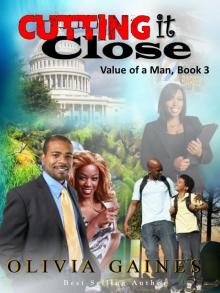 Cutting it Close
Cutting it Close Maple Sundaes & CIder Donuts
Maple Sundaes & CIder Donuts Holden
Holden Oregon Trails
Oregon Trails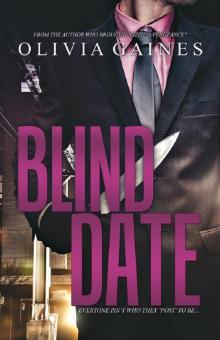 Blind Date (Venture, Georgia Book 3)
Blind Date (Venture, Georgia Book 3)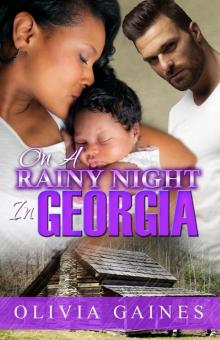 On a Rainy Night in Georgia
On a Rainy Night in Georgia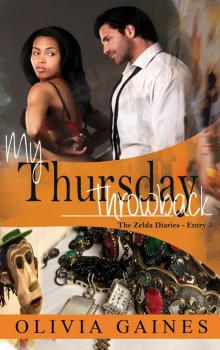 My Thursday Throwback
My Thursday Throwback The Bento Box
The Bento Box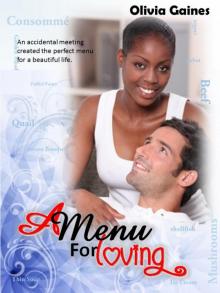 A Menu For Loving
A Menu For Loving Thursdays in Savannah
Thursdays in Savannah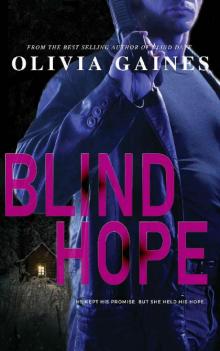 Blind Hope (The Technicians Book 2)
Blind Hope (The Technicians Book 2) North to Alaska
North to Alaska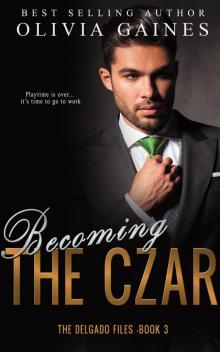 Becoming the Czar
Becoming the Czar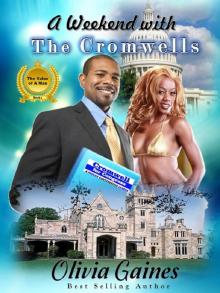 A Weekend with the Cromwells
A Weekend with the Cromwells The Tennessee Mountain Man
The Tennessee Mountain Man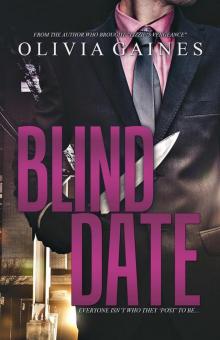 Blind Date
Blind Date Blind Fate
Blind Fate Dancing with Mr. Blakemore
Dancing with Mr. Blakemore Friends with Benefits
Friends with Benefits A Walk Through Endurance
A Walk Through Endurance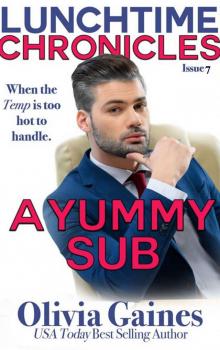 Lunchtime Chronicles: A Yummy Sub
Lunchtime Chronicles: A Yummy Sub Bleu, Grass, Bourbon
Bleu, Grass, Bourbon The Christmas Quilts
The Christmas Quilts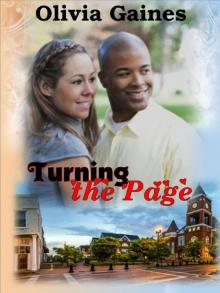 Turning the Page
Turning the Page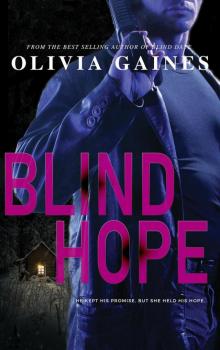 Blind Hope
Blind Hope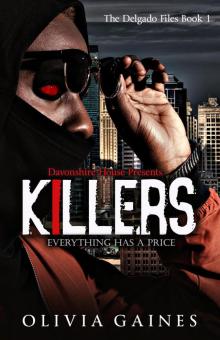 Killers
Killers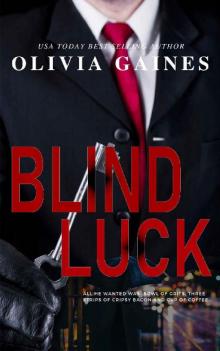 Blind Luck (The Technicians Series Book 3)
Blind Luck (The Technicians Series Book 3)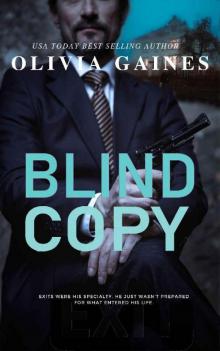 Blind Copy (The Technicians Series Book 5)
Blind Copy (The Technicians Series Book 5) Santa's Big Helper
Santa's Big Helper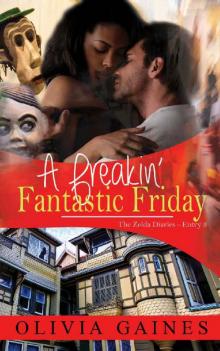 A Frickin' Fantastic Friday (The Zelda Dairies Book 3)
A Frickin' Fantastic Friday (The Zelda Dairies Book 3)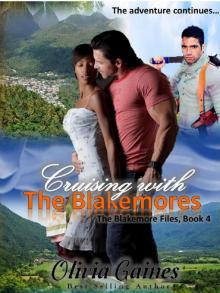 Cruising with the Blakemores
Cruising with the Blakemores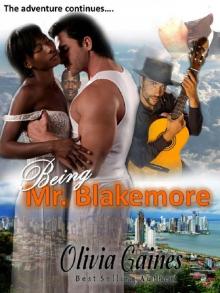 Being Mr. Blakemore (The Blakemore Files Book 7)
Being Mr. Blakemore (The Blakemore Files Book 7) Welcome to Serenity
Welcome to Serenity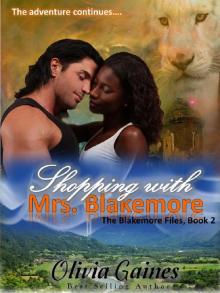 Shopping with Mrs. Blakemore
Shopping with Mrs. Blakemore Vanity's Pleasure
Vanity's Pleasure Loving the Czar (The Blakemore Files Book 6)
Loving the Czar (The Blakemore Files Book 6)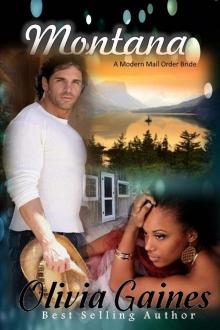 Montana (Modern Mail Order Bride Book 2)
Montana (Modern Mail Order Bride Book 2)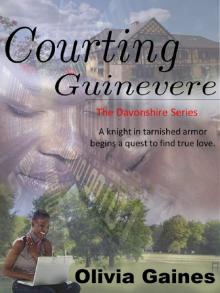 Courting Guinevere (The Davonshire Series Book 1)
Courting Guinevere (The Davonshire Series Book 1)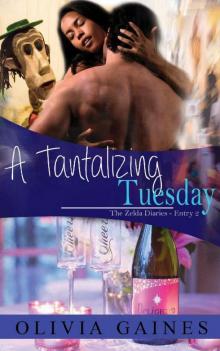 A Tantalizing Tuesday (The Zelda Diaries Book 2)
A Tantalizing Tuesday (The Zelda Diaries Book 2)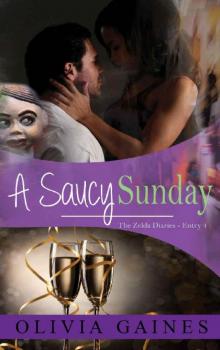 A Saucy Sunday (The Zelda Diaries Book 4)
A Saucy Sunday (The Zelda Diaries Book 4)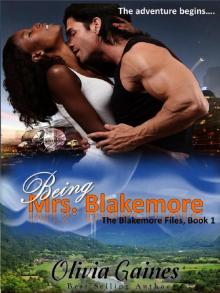 Being Mrs. Blakemore
Being Mrs. Blakemore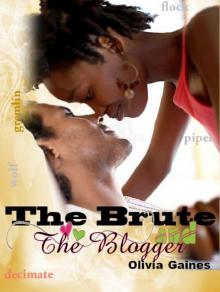 The Brute & The Blogger
The Brute & The Blogger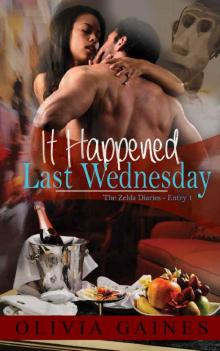 it Happened Last Wednesday (The Zelda Diaries Book 1)
it Happened Last Wednesday (The Zelda Diaries Book 1)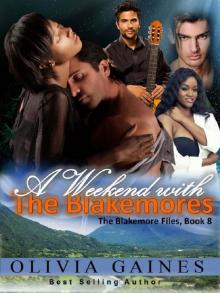 A Weekend with the Blakemores (The Blakemore Files Book 8)
A Weekend with the Blakemores (The Blakemore Files Book 8)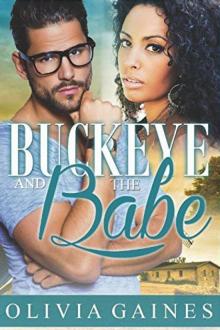 Buckeye and the Babe
Buckeye and the Babe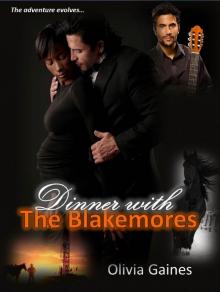 Dinner With the Blakemores (The Blakemore Files Book 5)
Dinner With the Blakemores (The Blakemore Files Book 5)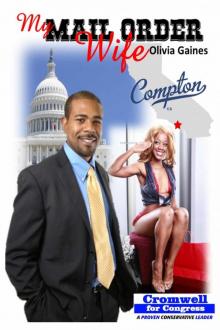 My Mail Order Wife (The Value of a Man Book 1)
My Mail Order Wife (The Value of a Man Book 1)